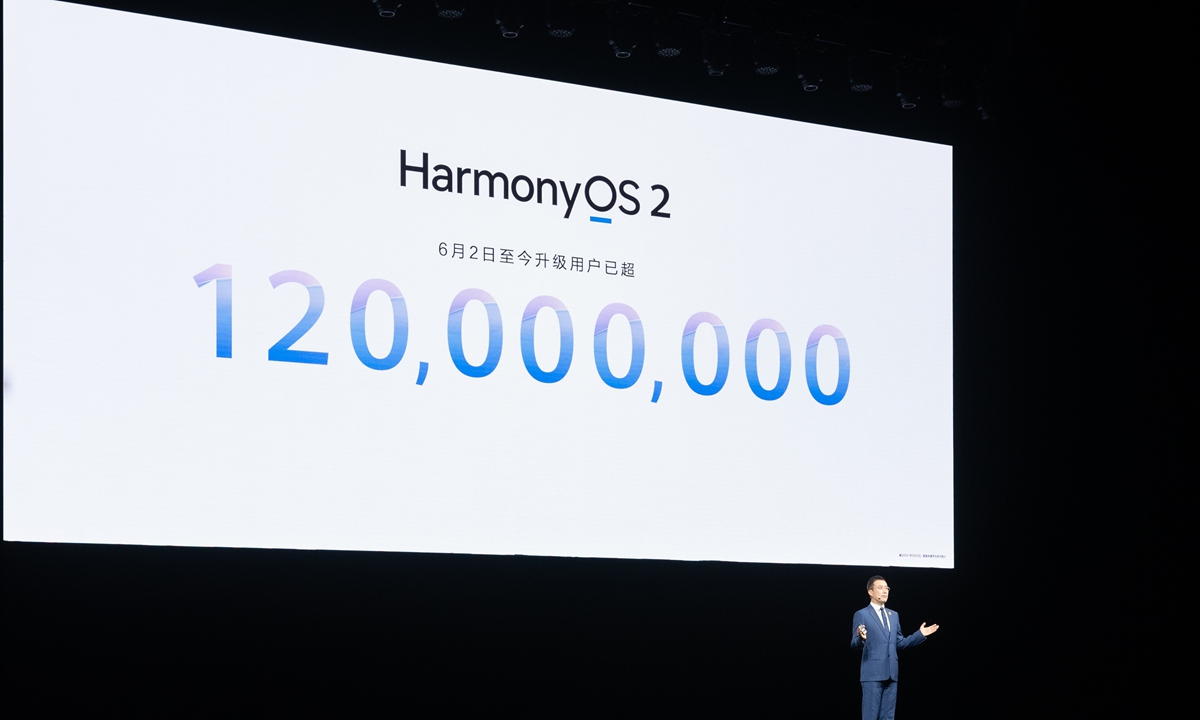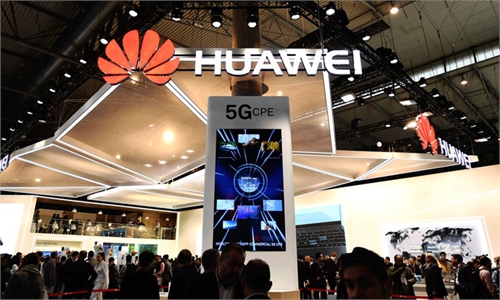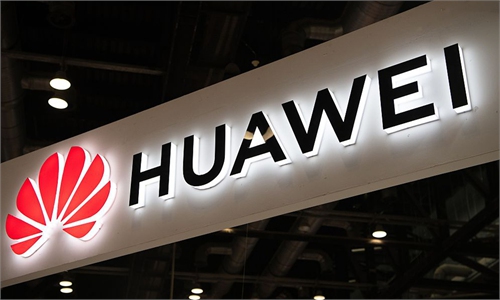
Huawei's HarmonyOS 2.0 reached another milestone on Thursday - 120 million devices
Chinese tech giant Huawei laid out a blueprint for its ambitions in the future digitalization era during its annual flagship industry event - Huawei Connect 2021 - on Thursday. The company's plan ranges from artificial intelligence (AI) to cloud businesses, as the besieged firm remains on track to transform itself into a service provider with the US chip ban showing no signs of alleviation.
"Digital development relies on digital technology. For digital technology to stay relevant, we must continue to innovate and create value. Cloud, AI and networks are three critical digital technologies," Xu Zhijun, rotating chairman of Huawei, said at the keynote speech during the event on Thursday.
Xu said that Huawei Cloud, which was launched just four years ago, has already brought together more than 2.3 million developers, 14,000 consulting partners and 6,000 technology partners, and it also made more than 4,500 services available in the Huawei marketplace.
Huawei also launched the industry's first distributed, cloud-native service called UCS - a ubiquitous cloud-native service - available on Huawei Cloud. With UCS, Huawei plans to provide enterprises with a consistent experience while using cloud-native applications that are not constrained by geographical, cross-cloud, or traffic limitations, thereby accelerating digital transformation in all industries.
This year's Huawei Connect 2021, themed "Dive into Digital," is being held from Thursday to Saturday online. It will be livestreamed in 11 languages on Huawei's corporate website and by its media partners, underscoring the firm's ambition in overseas markets despite increasing barriers.
When talking about barriers the company is about to face overseas for its cloud businesses, Zhang Ping'an, CEO of the cloud business unit and president of Huawei Consumer Cloud Service, told reporters on Thursday that "development of overseas Huawei Cloud will definitely be affected by non-technical factors, but we have made full preparations."
Huawei also believes that China is an open market, and it also encourages opening-up, Zhang added, noting that it will also address users' concerns over data privacy and security while achieving further development.
"For the past 30 years, Huawei has been relentless in connecting the world. For the next 30 years, we will build the cloud foundation for an intelligent future - Infrastructure as a Service for global accessibility, Technology as a Service for flexible innovation, and Expertise as a Service for shared excellence," Zhang said.
"Huawei's still stuck in terms of chips, so it has to go to software and areas that don't require advanced chips," Jiang Junmu, a Shanghai-based veteran industry expert and a close follower of Huawei, told the Global Times on Thursday.
US officials have approved license applications worth hundreds of millions of dollars for Huawei to buy chips for its growing auto component business, Reuters reported in August, citing two people familiar with the matter. However, the ban on advanced chips may not be lifted.
During the past few years, though the chip dilemma has caused some "flesh wounds" for the Chinese tech firm, Huawei did much to transform itself from a hardware maker to a software provider.
Since its official launch on June 2, Huawei's self-developed HarmonyOS 2.0 reached another milestone on Thursday - 120 million devices, which formerly ran Google's Android, have been updated to the in-house OS, making it the OS to reach that figure in the shortest time in the world.
The company has also released its new phone series, Nova 9, which features a strong selfie camera targeting China's vast young demographic, demonstrating its determination in the smartphone business although a chip shortage remains as a key problem.
The firm also launched an intelligent coal mining system based on the HarmonyOS that's ready for commercial use. It was unveiled in a high-profile event in Beijing on September 14, a step closer to make the next-generation operating system run on more than wearable devices.
Meanwhile, with its 5G capabilities, Huawei has been exploring more businesses domestically in a wider range of areas to find new income sources, including driverless mining vehicles, unmanned aerial vehicle mapping of geographic information, scheduling and monitoring, and wireless data transmission.
However, "the income generated by these new businesses... may hardly compensate for the losses Huawei has suffered," Xiang Ligang, director-general of the Beijing-based Information Consumption Alliance, told the Global Times, adding that only breakthroughs in chip research can "get (Huawei) back to where it used to be."


